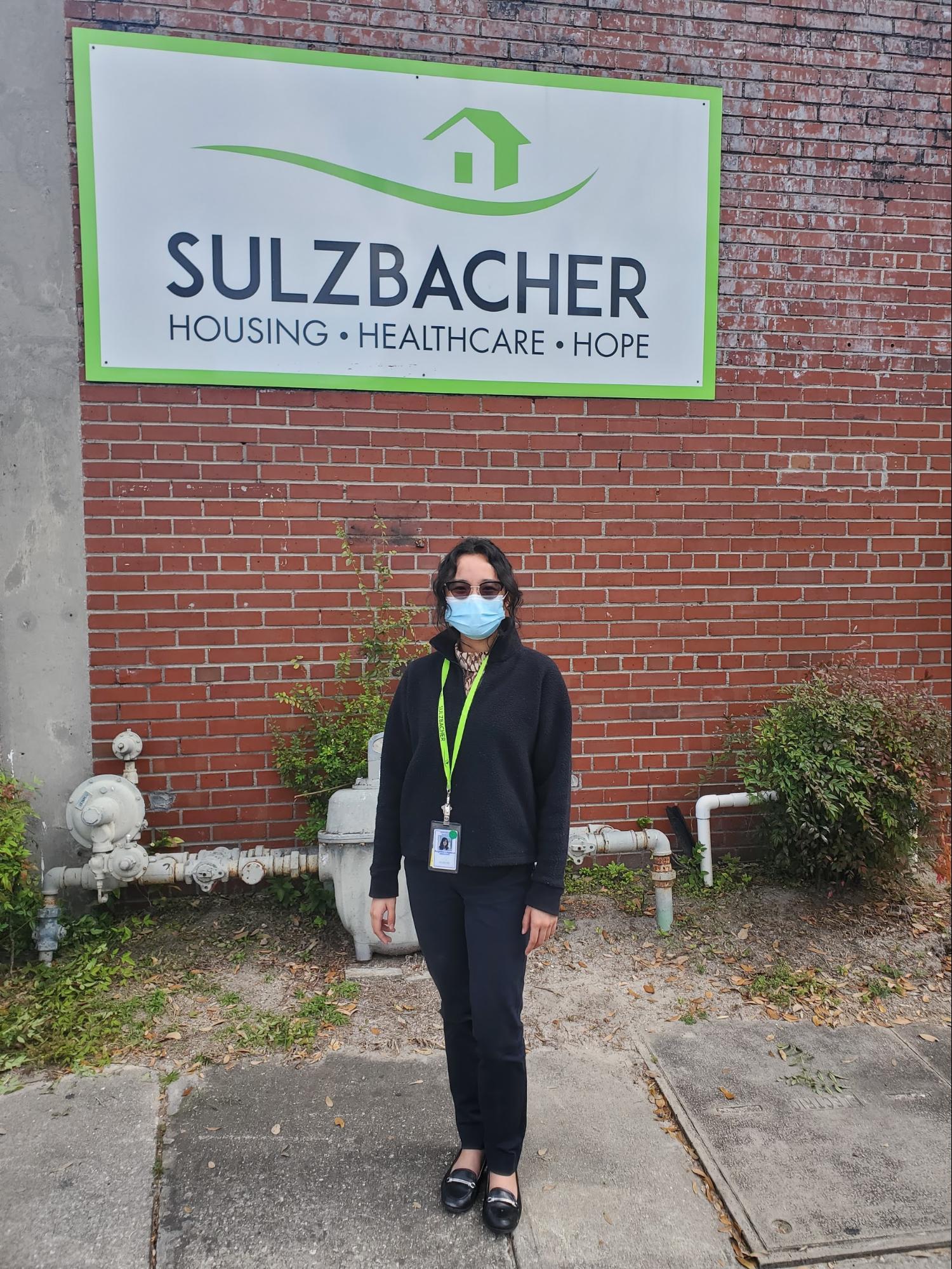The Donkey Kong of Healthcare by Angelica Lagasca

As with many of my fellow corps members, I came to service intending to do good and only good (a popular phrase touted by my college’s Delta Gamma or “D.G.” sorority). Since I was a recent graduate from a “liberal arts college” coming into a healthcare-related position during a global pandemic, it only made sense to bring along my lofty, ivory tower-borne ideals of universal healthcare. However, I soon came to realize that my service was not as cut and dry as signing away a few papers and immediately securing low-cost health services for my clients (optional: riding into the sunset).
Beginning in the fall of last year, I began my year of service with the Sulzbacher Center, a non-profit organization that provides shelter and comprehensive services to unstably housed, unemployed, and low-income individuals. As a patient navigator for Sulzbacher, I assist patients with applying for an income-based sliding fee plan for services at the Sulzbacher medical clinic. Through my months of service, I’ve found that as much as my position takes away barriers to care, it also enforces barriers. In order for my clinic to provide low-cost health services, it must use public funding, and in order to receive public funding, my clinic must secure verification of address and income from its patients. Imagine having to ask for that paperwork from a homeless patient with no income, who must walk 5-10 minutes to an agency that can provide that paperwork for them. Further, if a patient cannot secure that paperwork to receive their sliding-scale fee, they become responsible for the full cost of medical services. Although my medical clinic does incredible work with the help of public funding, that public funding comes with a cost - a Catch-22 that catches patients, providers, and clinics alike.
For months, I struggled personally and professionally with my

position. For lack of a better description, I felt like Mario trying to clamber up a series of ladders and ramps with a Donkey Kong named Bureaucracy throwing huge barrels of paperwork at me. I would have been stuck at the bottom and Princess Peach carried away had I not sought advice from others. People will always tell you to reach out to them, and trust me, this action could not be less underrated. With support and inspiration from my boyfriend and friends, my supervisor, fellow Americorps members, and other colleagues at my host site, I learned how to hop on up. Barriers to care will always exist, but I can always adjust my perspective of the issues: it is not me against a client; it is me and the client against the obstacles. By seeing myself as an ally for the client, I show that I understand their frustrations and do not take their anger personally. I communicate as clearly and as frequently as I can with my clients to make sure they gather the correct paperwork. I show them that I am human, and I admit when I make mistakes. I collaborate with my supervisor and colleagues at the Sulzbacher Center and outside agencies to brainstorm ways we can secure verification for clients. The process for securing verification can be long, arduous, and sometimes even impossible given the constraints. At the very least, I can make it easier for my clients.
Since the start of my service, I have been plagued with the worry that I am not doing “enough”. There will always be an extra step I can take to help my clients as I hear about their stories and struggles. However, by coming more strongly into my role as an eligibility coordinator, I can be satisfied that in the end, I really am just doing enough.
